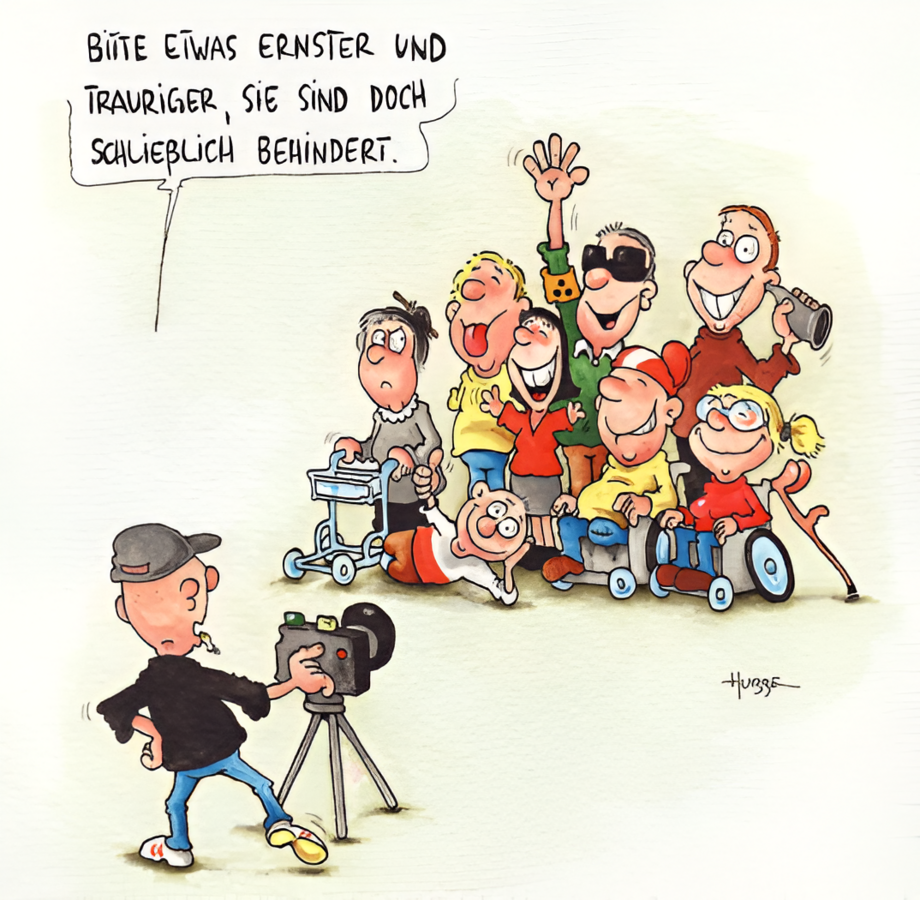Project details
Communities of laughter? Comedy and disability at the intersection of aesthetics and sociology

Although comedy and disability are often considered together in the arts (for example in film comedies), there are virtually no theoretically and methodologically sound discussions of this topic in the cultural or social sciences, let alone a joint consideration of 'disability and comedy' from the dual perspective of literature (film, theatre) as a symbolic and social system. However, questions about the potential of laughter and comedy and their ambivalence are of far-reaching importance, especially in discussions about inclusion: because laughter can include and exclude.
When one sees laughter and humor as human reactions to limitations of action, this ambivalence becomes immediately apparent: One laughs because of and despite the impairment, over and with the affected individuals. The laughing individual vacillates between opposites in feelings, desires, thoughts, judgments, or intentions, as well as between contradictory communications and actions. Ambivalence, as an inner conflict, generates fear, a sense of loss of control, and thereby tension states that block decisions, yet also enable creative solutions.
From these considerations arise individual questions that are to be discussed at the conference on four theoretical levels (individual examples, role of the body, normative aspects, critique of comedy). Two discussion rounds with practitioners aim to explore practical implications of comedy in the field of disability. The speakers consist of representatives from the fields of social sciences, education, literature, culture, media, theater, and film studies.
| Principal Investigator(s) at the University | Prof. Dr. Susanne Hartwig (Lehrstuhl für Romanische Literaturen und Kulturen) |
|---|---|
| Project period | 06.10.2021 - 06.10.2021 |

